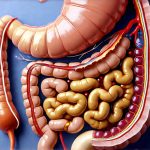The human digestive system is an incredibly complex and often underestimated process. We consume food expecting it to nourish us, but this transformation from whole foods into usable energy and building blocks relies on a delicate interplay of mechanical breakdown, chemical digestion facilitated by enzymes, and absorption within the gut. When this system falters, even seemingly minor disruptions can cascade into significant health consequences. Many people unknowingly experience suboptimal digestion due to factors ranging from lifestyle choices and chronic stress to genetic predispositions and age-related changes. This often results in incomplete nutrient extraction, leading to deficiencies that manifest as a wide range of symptoms, impacting everything from energy levels and immune function to cognitive performance and long-term disease risk.
Understanding the role of digestive enzymes is crucial for appreciating this vulnerability. Enzymes are biological catalysts – proteins that speed up chemical reactions within the body. Different enzymes target different macronutrients: amylase breaks down carbohydrates, protease tackles proteins, and lipase handles fats. A deficiency in any one or more of these enzyme systems can hinder proper digestion, leaving nutrients unabsorbed and potentially leading to a vicious cycle where malabsorption further exacerbates digestive issues. It’s not always about lacking the enzymes entirely; even reduced enzymatic activity can create substantial problems over time, especially considering the demands placed on our digestive system by modern diets and lifestyles.
Understanding Low-Enzyme Digestion
Low-enzyme digestion isn’t necessarily a diagnosable disease, but rather a functional impairment—a state where the body doesn’t produce enough enzymes to efficiently break down food. This can be caused by several factors, including age (enzyme production naturally declines with age), genetics (some individuals are predisposed to lower enzyme levels), and certain medical conditions like pancreatic insufficiency or inflammatory bowel disease. However, more commonly, it stems from lifestyle factors such as chronic stress, poor diet lacking in enzyme-rich foods, and frequent antibiotic use which can disrupt the gut microbiome – a key player in enzymatic processes. The symptoms of low-enzyme digestion are often vague and easily dismissed, making diagnosis challenging. These include bloating, gas, abdominal discomfort, diarrhea or constipation, heartburn, and even fatigue due to poor nutrient absorption.
The consequences extend beyond just digestive upset. When food isn’t properly broken down, larger undigested particles can irritate the gut lining, potentially contributing to leaky gut syndrome and systemic inflammation. Furthermore, malabsorption of essential nutrients – vitamins, minerals, amino acids, and fatty acids – leads to deficiencies that impact nearly every bodily function. For instance, a lack of fat-soluble vitamin absorption (A, D, E, K) due to insufficient lipase can compromise immune function, bone health, and vision. Similarly, inadequate protein digestion can hinder muscle repair, hormone production, and enzyme synthesis itself, creating a negative feedback loop.
It’s important to distinguish between low-enzyme digestion and food intolerances or allergies. While symptoms may overlap, the underlying mechanism is different. Food intolerance (like lactose intolerance) involves a lack of a specific enzyme needed to digest a particular component of food. Low-enzyme digestion, however, represents a broader impairment in the overall enzymatic capacity across multiple nutrient categories. Identifying the root cause – whether it’s lifestyle related or due to an underlying medical condition – is key to implementing effective strategies for improvement.
Common Nutrient Deficiency Risks
The specific nutrients most at risk of being poorly absorbed in low-enzyme digestion vary depending on which enzyme systems are compromised, but certain deficiencies are more common. Vitamin D deficiency is prevalent even in populations with adequate sun exposure, and often exacerbated by impaired fat absorption due to low lipase activity. This can lead to weakened immunity, bone pain, and increased risk of chronic diseases. Similarly, B vitamins, essential for energy metabolism and nerve function, may be poorly absorbed if protein digestion is compromised, as many B vitamins are bound to proteins.
Iron deficiency anemia is another common consequence, particularly in individuals with impaired protease activity hindering the breakdown of iron-rich foods. Even seemingly minor deficiencies can have a significant impact on overall health. For example, magnesium deficiency, often overlooked, can contribute to muscle cramps, fatigue, and even anxiety. The insidious nature of these deficiencies means they can develop gradually over time, going unnoticed until symptoms become severe. This highlights the importance of proactive assessment and addressing potential enzymatic imbalances before nutrient depletion reaches a critical point.
Strategies for Supporting Enzyme Function
Addressing low-enzyme digestion is often multifaceted, requiring both dietary modifications and lifestyle adjustments. Incorporating enzyme-rich foods into your diet can provide a natural boost to digestive capacity. Pineapple, papaya, mangoes, kiwis, avocados, fermented foods (yogurt, kefir, sauerkraut), and raw honey all contain naturally occurring enzymes like amylase, protease, and lipase. Reducing processed food intake is also critical, as these foods often lack inherent enzymatic activity and can be more difficult to digest. Minimizing stress levels through techniques such as mindfulness, yoga, or meditation can help optimize digestive function, as chronic stress inhibits enzyme production.
Beyond dietary changes, supplemental enzymes can offer targeted support. Digestive enzyme supplements containing a blend of amylase, protease, lipase, and other enzymes are readily available. However, it’s important to choose high-quality supplements from reputable brands and consider consulting with a healthcare professional to determine the appropriate dosage and formulation for your individual needs. Finally, supporting gut health through probiotic supplementation or incorporating prebiotic-rich foods (onions, garlic, bananas) can help restore beneficial bacteria that contribute to enzymatic processes.
Optimizing Digestion Long-Term
Long-term management of low-enzyme digestion focuses on creating sustainable habits that support optimal digestive function. This includes prioritizing whole, unprocessed foods, staying adequately hydrated, chewing food thoroughly (a simple but often overlooked step), and practicing mindful eating—paying attention to hunger cues and avoiding overeating. Regular physical activity also plays a role, as it promotes gut motility and overall health.
Gradual changes are typically more effective than drastic dietary restrictions. Experimenting with different foods and observing how your body responds can help identify potential trigger foods or sensitivities. Maintaining a food diary can be incredibly helpful in this process. Ultimately, the goal isn’t to eliminate all potentially problematic foods but rather to find a balanced approach that supports optimal digestion and nutrient absorption without unnecessary restriction. Remember, listening to your body’s signals and seeking guidance from qualified healthcare professionals are essential for navigating the complexities of digestive health and ensuring long-term well-being.


















